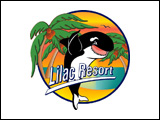Research conducted at the University of Guelph has shown, under certain conditions, pork producers can reduce feeding costs without impacting performance by feeding less complex diets in the nursery barn.
As part of a multi-institutional initiative being conducted on behalf of Swine Innovation Porc aimed at improving the productivity and longevity of the sow herd, the University of Guelph looked at the Long Term Impact of Post Weaning Feeding Strategies.
Scientists tracked five groups of pigs fed two different diets during the nursery phase.
Dr. Kees de Lange, a professor of swine nutrition with the University of Guelph, says researchers looked at the physiology of the animals including their ability to fight disease and the role of diet in the nursery phase on growth performance right up to market weight and on carcass quality.
The real surprise to us was that animals that performed a little bit poorer in the nursery phase, because we gave them a diet that had fewer of those expensive animals proteins that are included in starter pig diets, those pigs that performed poorer in the nursery in fact performed better during the grower finisher phase and at the end of the day there was no difference in days to market, in carcass quality of the animals that had originally shown some poorer performance in the nursery.
The practical implications of this research is that we in fact reduce the feeding cost in the nursery phase by more than two dollars per pig and then on top of that those animals also, because they showed this compensatory growth, tended to be more efficient in the grower finisher barn so that the total benefit to the producer is in fact more than two dollars and getting close to three dollars per pig out the door.
Dr. de Lange says, the results were consistent in four of the groups but, in the fifth group which was hit by disease, animals fed the less complex diet did not manage as well which raises the question of how the nursery feeding program will influence the pig’s ability to fight disease.
He says that will need to be answered before making broad recommendations on nursery feeding programs.



